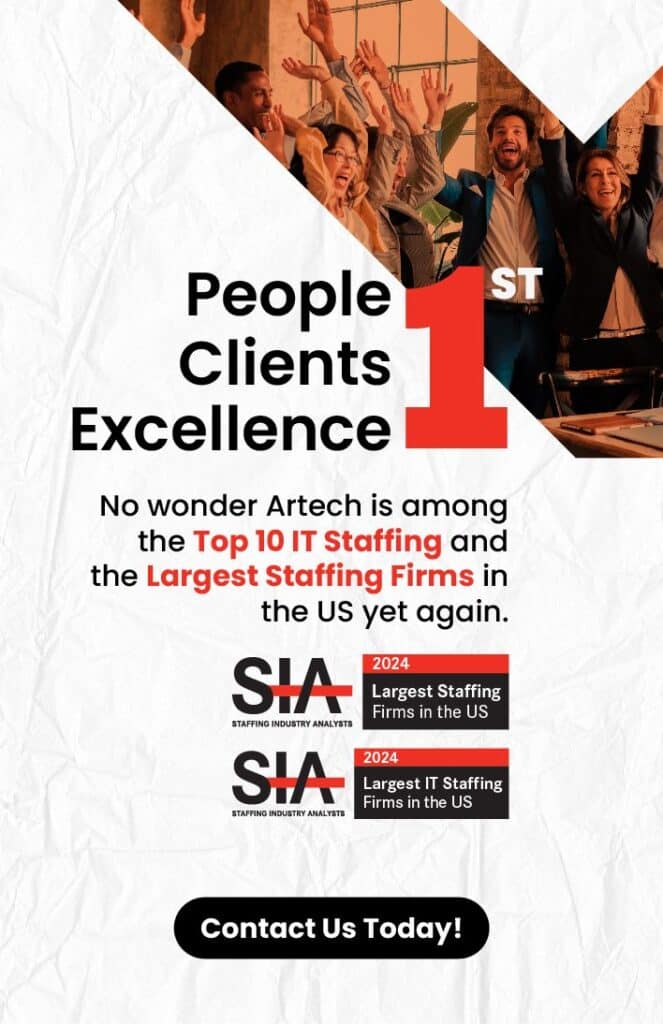
With a shifting job market and fewer entry-level software engineering jobs available, breaking into the field has become tougher than ever. But the data tells you a different story. There’s a growing demand for developers in both India and the United States, and software development roles are projected to grow 17% by 2033—according to the U.S. Bureau of Labor Statistics.
Despite this demand, many recent graduates are hitting a wall. Why? Junior job listings now ask for nearly 4.5 years of experience—far more than most entry-level candidates have. That’s because AI tools are automating many of the simpler tasks that junior engineers used to handle. As a result, companies are raising the bar, expecting even their newest hires to hit the ground running. And to make things more complicated, resumes are getting screened out by automated filters before a human ever sees them.
That said, the entry-level IT job market hasn’t disappeared; it’s changed. Let’s see why the traditional path to your first role no longer works, what employers want from junior engineers today, and how you can stand out with the right skills, strategy, and support.
Why You’re Struggling to Get Noticed as an Entry-Level Engineer
You need the right skills to get a foot in the door of your first tech job. But that’s not all. Your skills won’t matter unless you clear two major barriers first, before you even get a chance to prove yourself.
The First Barrier: HR and ATS Aren’t Built for Engineers
In most hiring pipelines, the engineering team isn’t your first hurdle, it’s the applicant tracking system (ATS) and the recruiter that make your resume invisible.
ATS software is built to filter resumes based on keyword matches, not actual capability. If your resume doesn’t mirror the job description, it may never get reviewed by a human.
And when it does get reviewed, that human is often an HR generalist, not a technologist. They may not know the difference between a framework and a language, or how to spot strong fundamentals in a candidate with limited experience. That’s a big reason why junior developers don’t get hired, even when they have the potential.
The Second Barrier: AI Has Raised the Bar for Entry-Level Engineers
What comes after the initial screening is just as tricky, especially because today’s entry-level software engineering roles aren’t what they used to be. Simple tasks that once helped juniors learn on the job, like writing test cases or fixing basic bugs, are now being handled by AI-assisted coding tools.
This shift means hiring managers expect more from entry-level engineers upfront. You’re expected to work efficiently alongside AI, pick up tools quickly, and demonstrate readiness to contribute to production environments early on.
In short, the bar for what defines a “junior” engineer has quietly—but significantly—moved higher.
What Employers Want from Entry-Level Engineers Today
It’s tempting to assume that your degree and a few personal projects are enough to land your first job. But this year, that’s rarely the case. The expectations for junior engineers are not limited to writing clean code. So, what other skills do you need?
Strong Technical Foundations—Plus Practical Fluency
Yes, employers still care about fundamentals: data structures, algorithms, object-oriented programming. But what truly sets you apart is how well you’ve applied that knowledge to real-world scenarios.
Hiring managers want to see that you understand how software gets built, deployed, and maintained, not just how it compiles. Experience with version control (like Git), CI/CD pipelines, API calling, and using debugging tools is often considered a baseline, even for juniors.
An AI-Augmented Mindset
Companies aren’t just evaluating whether you can code, they’re evaluating whether you can code quickly and efficiently. With tools like GitHub Copilot and ChatGPT becoming standard parts of development workflows, engineers who know how to use AI productively have a clear edge.
That doesn’t mean you start relying on AI to write entire features. It means you use AI to speed up boilerplate, test edge cases, generate documentation, or explore multiple implementation paths faster. Being AI-fluent is becoming as important as being language-fluent.
Essential Soft Skills
This requirement is especially true in hybrid or remote teams where communication and collaboration are crucial for every day work. Employers want junior engineers who can articulate problems clearly, ask thoughtful questions, take feedback well, and stay curious. Initiative and adaptability often matter more than mastery of a specific framework—because tech stacks change fast.
How to Get Hired in 2025
Learning to code is only half the battle. Understanding how to present yourself to employers is equally important. Here are a few practical tech tips to help you get started.
1. Optimize Every Application
Every job you apply to deserves a tailored resume. Don’t rely on LinkedIn’s “Easy Apply” or mass CV submissions. Most of those resumes never get past the ATS.
Instead:
- Tailor your resume for each role. Mirror keywords from the job description—tools, frameworks, and soft skills, exactly as written.
- Highlight impact. Instead of “Built a web app,” say “Built a React-based budgeting tool used by 150+ students.”
- Keep formatting clean. Use standard headings (Experience, Projects, Skills), no tables or images, and always submit as PDF unless told otherwise.
- Focus on your project work. For entry-level roles, it’s often the most valuable part of your resume.
A well-optimized application gets you through the door, while a generic one gets ignored.
2. Prepare for Practical Tests
Many entry-level candidates stumble on coding assessments. Focus on:
- Timed challenges (LeetCode, HackerRank)
- Real-world problem solving
- Writing clean code under pressure
And don’t just aim for the right answer—be ready to explain your thinking clearly.
3. Use the STAR Method in Interviews
Great answers come down to structure, not about memorizing the “right thing.”
Use the STAR method:
- Situation – What was the context?
- Task – What was your responsibility?
- Action – What did you do?
- Result – What changed or improved?
Whether it’s a project, conflict, or challenge, this format shows clear thinking, communication skills, and ownership, especially in behavioral interviews.
4. Network with Intent
Because people are the most powerful tool in your job search.
Many roles are filled before they’re ever posted. And no algorithm is better than a human who says, “You should meet this person.”
Here’s how to make it work:
- Reach out on LinkedIn to alumni, engineers, or hiring managers who’re in similar roles to the one you’re targeting.
- Engage publicly—share projects, ask questions, and comment on posts.
- Show up to meetups, webinars, or hackathons—virtual or in-person.
You don’t need hundreds of connections—just a few strong, relevant ones who remember your name.
Your First Job in Tech Starts with a Planned Approach
Breaking into entry level software engineering jobs today is harder than it should be, but not impossible. The hiring landscape is changing, and while that comes with frustration, it also creates space for smart, self-driven candidates to thrive.
So what’s that one golden piece of career advice for new software engineers?
Focus on building strong projects, learning skills that align with the IT job market in 2025, and reach out to the right people. This will provide you with a better chance to cut through outdated hiring filters and being seen for your true potential.
If you’re looking to kickstart your tech career, explore entry-level software engineer roles at Artech. We work closely with junior candidates to connect them with opportunities across the globe.
Check out our latest openings or browse career resources built specifically for early-career developers.
This content is crafted with care by Artech Staff Authors. While it reflects our commitment to quality and accuracy, please note that it is not authored by industry experts. We aim to offer valuable and engaging information, and for more specialized or technical advice, we recommend consulting with professionals in the relevant field. If you have any concerns or require further assistance, please contact us at support@artech.com. Thank you for trusting Artech as your source of informative content.








